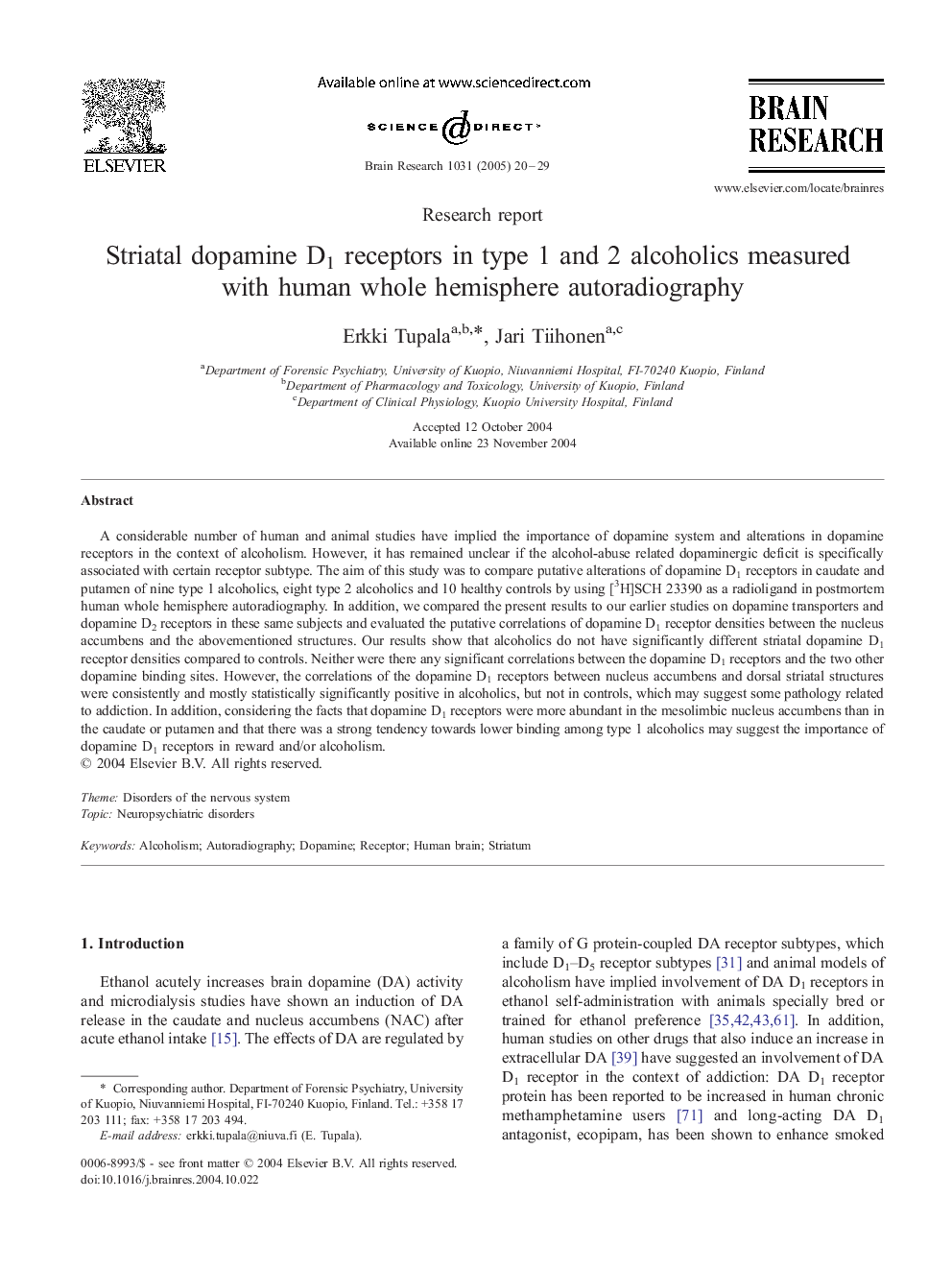| Article ID | Journal | Published Year | Pages | File Type |
|---|---|---|---|---|
| 9416725 | Brain Research | 2005 | 10 Pages |
Abstract
A considerable number of human and animal studies have implied the importance of dopamine system and alterations in dopamine receptors in the context of alcoholism. However, it has remained unclear if the alcohol-abuse related dopaminergic deficit is specifically associated with certain receptor subtype. The aim of this study was to compare putative alterations of dopamine D1 receptors in caudate and putamen of nine type 1 alcoholics, eight type 2 alcoholics and 10 healthy controls by using [3H]SCH 23390 as a radioligand in postmortem human whole hemisphere autoradiography. In addition, we compared the present results to our earlier studies on dopamine transporters and dopamine D2 receptors in these same subjects and evaluated the putative correlations of dopamine D1 receptor densities between the nucleus accumbens and the abovementioned structures. Our results show that alcoholics do not have significantly different striatal dopamine D1 receptor densities compared to controls. Neither were there any significant correlations between the dopamine D1 receptors and the two other dopamine binding sites. However, the correlations of the dopamine D1 receptors between nucleus accumbens and dorsal striatal structures were consistently and mostly statistically significantly positive in alcoholics, but not in controls, which may suggest some pathology related to addiction. In addition, considering the facts that dopamine D1 receptors were more abundant in the mesolimbic nucleus accumbens than in the caudate or putamen and that there was a strong tendency towards lower binding among type 1 alcoholics may suggest the importance of dopamine D1 receptors in reward and/or alcoholism.
Keywords
Related Topics
Life Sciences
Neuroscience
Neuroscience (General)
Authors
Erkki Tupala, Jari Tiihonen,
